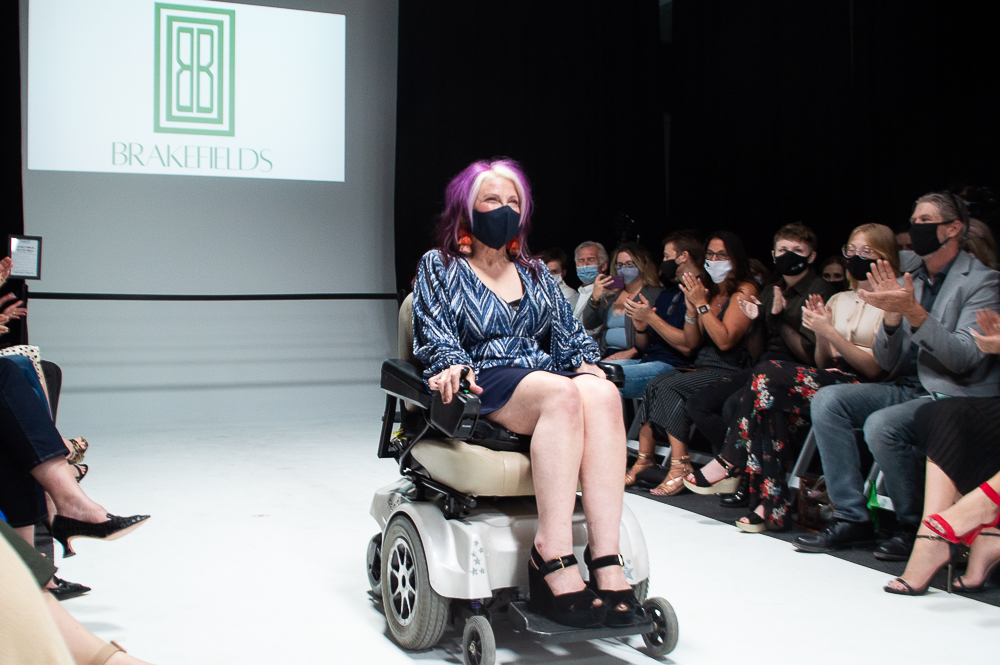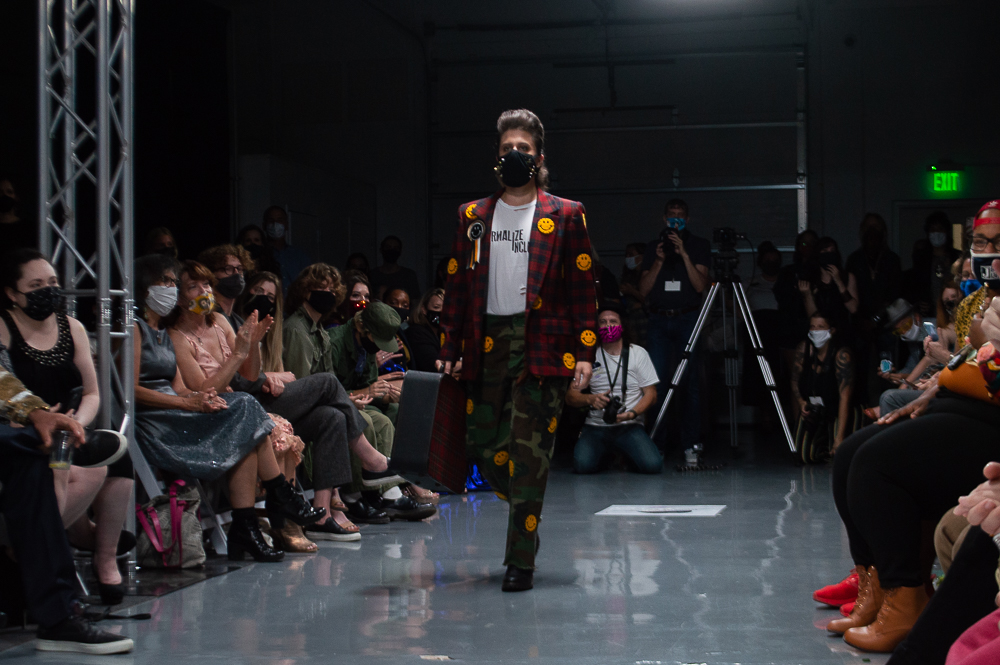
Hairspray and glitter are flying before the fashion show, as models hurry to get ready. Alicia Searcy is getting final touch-ups on her make up and her purple and blonde hair.
“My hair is a cross between David Bowie and Chrissie Hynde of the Pretenders,” she says proudly.
Searcy is the founder of Fashion Is For Every Body. This year marked the organization’s fifth inclusive fashion show, featuring models of different sizes, gender identities, races and abilities.
She came up with the idea years ago, after she was invited to a fashion show but couldn’t get in when she showed up. The venue wasn’t accessible for Searcy, who uses a wheelchair.
“I have cerebral palsy, and that’s a birth defect. I can’t really help it. I can’t fix it,” Searcy says. “But I can change the way that I present myself to people, and I can use fashion as a language.”
 Paige Pfleger WPLN News
Paige Pfleger WPLN NewsAlicia Searcy on the runway at the Fashion Is For Every Body show.
Last year’s show was canceled because of the COVID pandemic, and this year Searcy is requiring everyone involved to be vaccinated and wear masks. She wanted to protect immunocompromised models, even though it meant losing some hair and makeup artists who didn’t want to comply with her mandate.
On top of grappling with the pandemic, Searcy has set a new standard for the show: Designers who dress models with disabilities or people with dexterity issues must create clothes the models can put on themselves.
Designer Suzanne Wade says before working with Fashion Is For Every Body, she didn’t think much about accessibility.
“Honestly, I’m still learning,” Wade says. “Buttons and button holes can be challenging. So for people that have a hard time working their fingers, we changed everything out everything to large snaps. … Things like that.”
 Paige Pfleger WPLN News
Paige Pfleger WPLN NewsLP Poglitsch walks the runway wearing clothes from Rank & Sugar at the Fashion Is For Every Body show.
One model wearing Wade’s designs is LP Poglitsch, who is non-binary and queer. Poglitsch says fashion helps them feel like their authentic self.
“Humans are amazing,” Poglitsch says. “Regardless of identity or ability, you should be able to show your stuff down a runway and — you know, why not — look amazing doing it.”
This is Poglitcsch’s first runway with Fashion Is For Every Body, and to shouts and cheers from the crowd, they walk the catwalk in a shirt that says, “Normalize Inclusion.” That’s exactly what the show aims to do.

